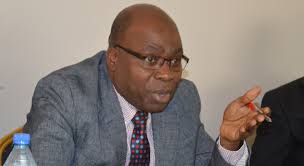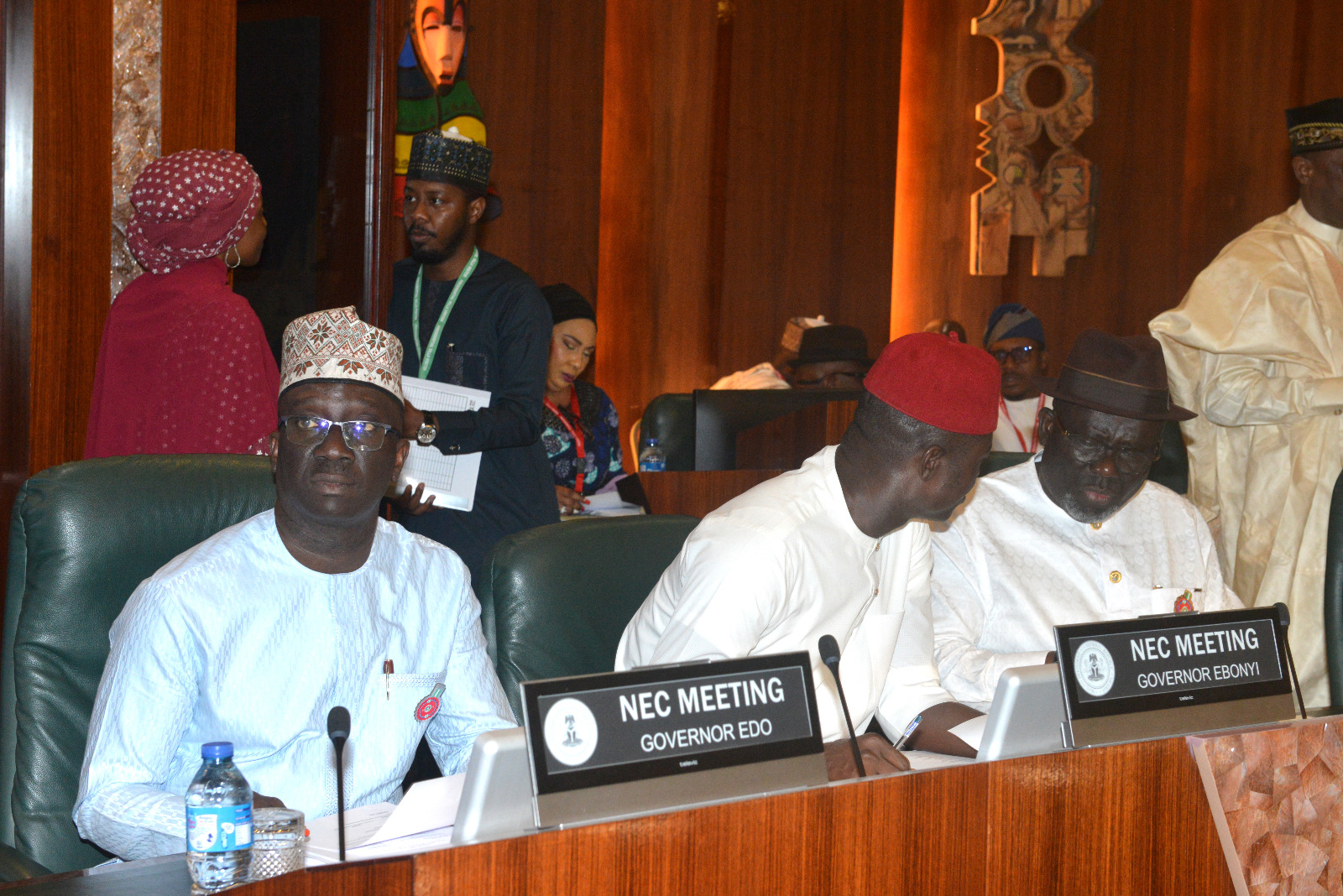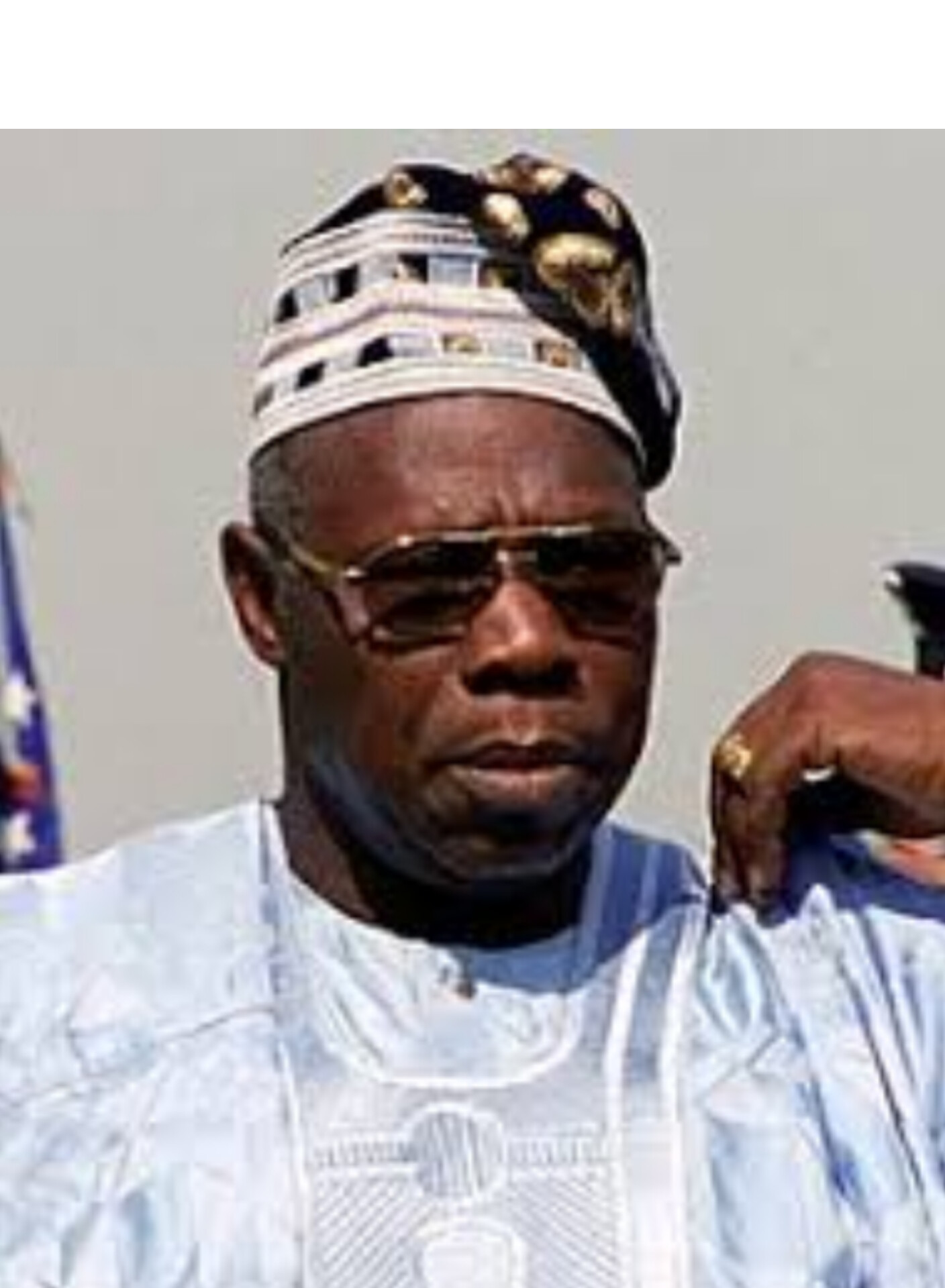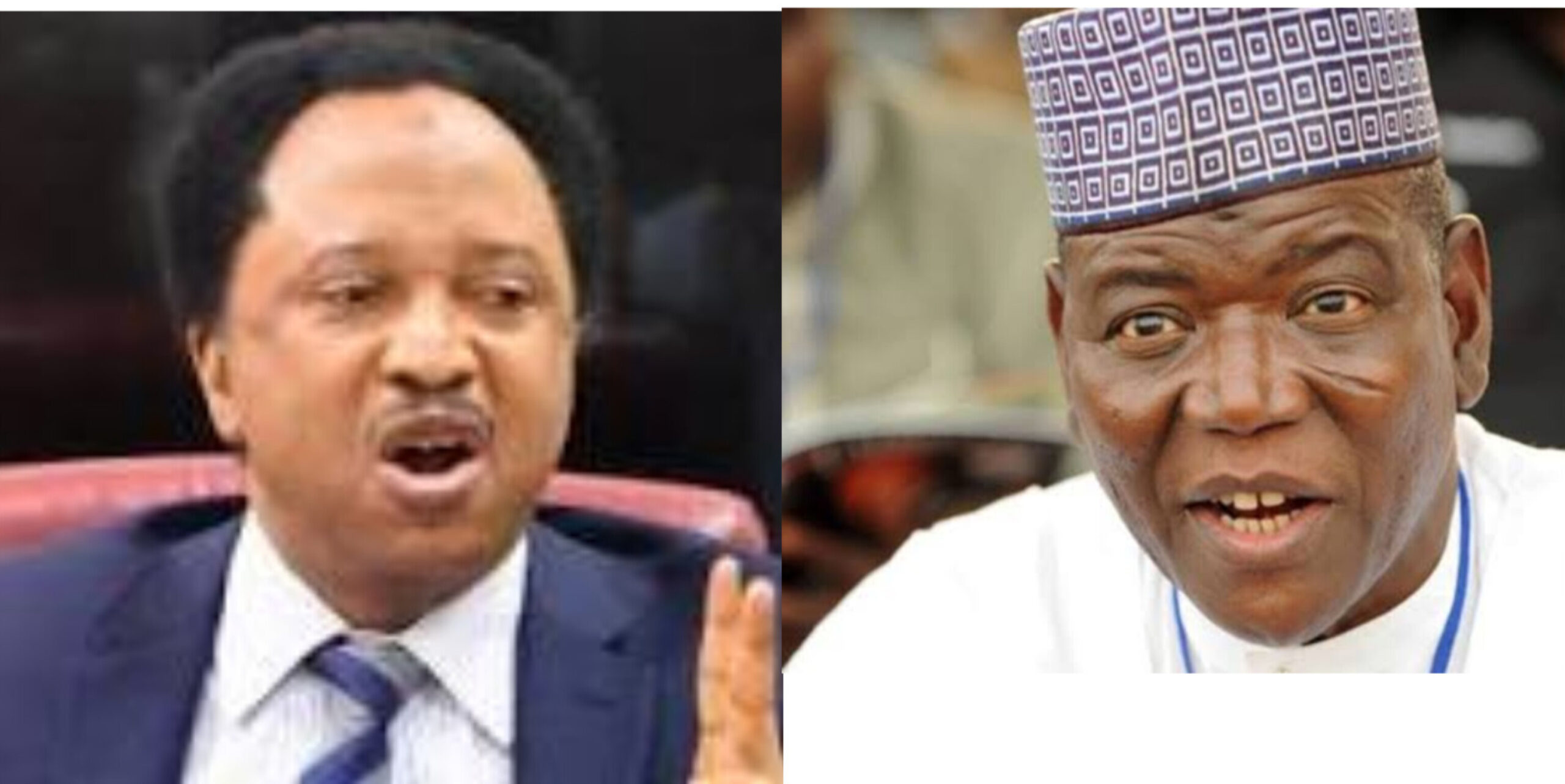National
Fund meant to fix Nigeria is being stolen on daily basis, says Owasanoye

Pervasive systemic corruption in the country has paved way for Money needed to fix Nigeria to be stolen on daily basis, Chairman of the Independent Corrupt Practices and other Related Offences Commission ( ICPC), Professor Bolaji Owasanoye has indicated.
Owasanoye stated this in Abuja as Guest Speaker at the 2 – day Capacity – Building Workshop organized for members of the House of Representatives Committee on Anti – Corruption and Military Officers, by the National Institute for Legislative and Democratic Studies ( NILDS)
He said on electronic transactions alone, N24trillion has been transacted between January to June this year , which is always about N50trillion yearly.
Corruption in Nigeria according to him, is highly systemic as it is being perpetrated in most of the government owned agencies, particularly the revenue generating ones.
He disclosed that the ICPC intercepted N181million about being diverted or stolen by corrupt public officers between January and June this year from 19 of such agencies, saying “we are not in short supply of anti – corruption legislations but grossly in short supply of integrity “.
“If not for lack of integrity from affected public officers , Nigeria has enough anti – corruption agencies or institutions to stem the tide of systemic corruption.
“Aside ICPC and the Economic and Financial Crimes Commission ( EFCC) , public institutions like the Bureau for Public Procurement ( BPP), the Central Bank of Nigeria ( CBN) and 45 others are anti – corruption regulatory bodies .
“The CBN is an anti corruption gatekeeper, the Infrastructure Concession and Regulatory Commission, (ICRC) is an anti corruption gatekeeper…I could go on, many of them like that, if you aggregate them, you would get like about 50.
“Most regulatory bodies also play anti corruption role. Virtually, all professions are regulated…and every unethical practice that is carried out by these professionals is already prohibited by their rules, so we are not in short supply of anti corruption institutions but what we are in short supply of, is integrity. We have a generous supply of hypocrisy, and we also deceive ourselves.
“But despite the required legislations or laws to fight the cankerworm, lack of integrity and political will from those saddled with running of the agencies , make corruption to be so pervasive in the country .
” Unfortunately since corruption erodes capacity of state or government , to provide welfare for the people , is also fueling and aggravating insecurity in the land .
“If corruption is fought to standstill by all relevant agencies and public officers , it will be discovered that the money to fix Nigeria , is in Nigeria and not elsewhere because N24trillion was spent on monitored electronic transactions alone among Nigerians within Nigerians from January to June this year, which runs to about N50trillion yearly”, he said .
He further pointed out that corruption is an existential issue for Nigeria as a country adding that the country needs to have conversation around it.
According to him, factors like weak legislative oversights by relevant committees of the National Assembly, contracts variations and duplications by MDAs, tax avoidance , evasion and underserved waivers etc , are the channels through which corrupt practices are carried out in Nigeria
He also blamed his colleagues in the legal profession, who at times would be acting for clients against the Commission, who are serving public servants involved in corrupt practices of using public funds for execution of projects through companies they have interests in, as according to him, it is illegal for such clients to be involved in such businesses at that time, and also ethically wrong for them to award such contracts to companies where they have interests, adding that such ethical breaches ought to be dealt with properly.
In his remarks, Chairman of the House Committee on Corruption, Hon. Shehu Garba said corruption usually denies a nation of the needed development, and making good plans for the future, adding that fighting the menace cannot be effective without collaboration.
The Chief of Defence Staff , General Lucky Irabor , represented by Major – General A. A . Adesope said there is a serious link between corruption , insecurity and instability .
He said the theme of the Workshop ” Corruption : A threat to Security in Nigeria ” , is very apt at this time that the country and in particular , the military and other security agencies are taking the fight to those perpetrating various crimes and criminalities across the country .
“Corruption engenders insecurity and instability in the country and must be fought by all and sundry “, he said .
In his own remarks , the Director – General of NILDS, Professor Abubakar Sulaiman said the workshop was organized for members of the House Committee on Anti – Corruption and military officers as a way of bringing to the front burner , the need for required collaboration in the war against corruption by all relevant stakeholders .
National
Edo Governor Joins National Economic Deliberations

Edo State Governor, Senator Monday Okpebholo, attended his inaugural National Economic Council (NEC) meeting on Thursday at the State House Council Chambers in Abuja.
The session was presided over by Vice President Kashim Shettima.
The NEC serves as a vital forum for state governors, deputy governors, and the federal government’s economic team to discuss and address key economic challenges.
In a gesture to mark his first appearance, Governor Okpebholo was invited by Vice President Shettima to lead the opening prayer after the national anthem.
This event underscores Edo State’s active commitment to collaborating on national economic policies and driving solutions for Nigeria’s progress.
National
At Achebe Forum, Obasanjo Labels Nigeria a ‘Failing State’ Criticizes Tinubu’s Leadership

Former President Olusegun Obasanjo has expressed sharp criticism of President Bola Tinubu’s administration, stating that Nigeria’s decline is now evident to “every honest observer.”
Speaking at the Chinua Achebe Leadership Forum at Yale University in the U.S., Obasanjo attributed the country’s deteriorating state to leadership failure, pointing specifically to Tinubu’s governance, which he referred to as “Baba-go-slow and Emilokan.”
In his keynote address titled “Leadership Failure and State Capture in Nigeria,” Obasanjo highlighted that pervasive corruption and mismanagement have worsened Nigeria’s challenges, driving the country deeper into insecurity, division, and underdevelopment.
He quoted the late writer Chinua Achebe, who in his book The Trouble with Nigeria argued that the country’s fundamental problem is a failure of leadership, not a flaw in its people or resources. According to Obasanjo, this diagnosis remains as relevant today as it was over 40 years ago.
Obasanjo cited works by American experts Robert Rotberg and John Campbell, who have characterized Nigeria as a “failed state.” Their argument, he noted, suggests that Nigeria’s inability to maintain security and stability has serious implications for Africa and the world at large.
Additionally, the former President described “state capture” as a pressing issue in Nigeria, where powerful individuals and groups exploit government resources and policies for personal gain. Obasanjo argued that this corruption undermines national interests, with influential elites shaping the country’s legal and economic systems to benefit themselves. Such practices, he warned, compromise public welfare, affecting the quality of education, healthcare, and infrastructure development.
In reflecting on Achebe’s legacy, Obasanjo praised the late author’s commitment to truth and the moral foundation he established for Nigeria. He urged Nigerians and the international community to recognize the dangers of state capture and work towards restoring a governance model that prioritizes the public good.
National
Sule Lamido, Shehu sani disagree over National Security Adviser

The senator who represented Kaduna Central Senatorial District in the 8th National Assembly, Shehu Sani has disagreed with a former Governor of Jigawa State, Sule Lamido over national security issues
Lamido had taken a strong position against the current National Security Advisor (NSA), Nuhu Ribadu accusing him of compromising his professional integrity and acting more like a spokesperson for President Bola Tinubu than fulfilling his constitutional role.
Sani advised Lamido to at least appreciate how the Tinubu led Administration tackled insecurity instead of politicizing it in his comment on the National Security Adviser.
Ribadu who was basking in the euphoria of the recent claims of decimating the insurgents cautioned anyone “not to dare Tinubu”, espercially the new Lakurawa Insurgents a development which infuriated the former governor of Jigawa State and a Chieftain of the Peoples Democratic Party,(PDP), prompting him to take to his verified facebook wall to describe the NSA as “loquacious, flippant and qualified to have been Tinubu’s Minsiter of Information instead of NSA.”
Lamido Criticizes NSA for Sycophantic Behavior, Urges Focus on Duties.
Lamido in his comment had expressed concerns over the NSA’s behavior, particularly his past actions as the Chairman of the Economic and Financial Crimes Commission (EFCC) under President Olusegun Obasanjo. Lamido reminded Nigerians of the NSA’s controversial remarks, including his public labeling of prominent governors—such as Tinubu, Kalu, and Akume—as the “most corrupt.” Lamido pointed out the stark contradiction between the NSA’s earlier criticisms and his current position, serving under the same figures he once condemned.
The former governor called the NSA’s decision to join the administration of President Tinubu—a leader he previously described as corrupt—a “singular mistake,” one that Lamido believes has tarnished the NSA’s credibility and character. “You are not a spokesperson for the President, you are a National Security Advisor,” Lamido emphasized, urging the NSA to return to the professionalism that has historically defined the role.
Lamido argued that previous holders of the NSA position, including the late Umaru Shinkafi, General Gusau, and Colonel Dasuki, all displayed discipline and a low profile, focusing on security matters without resorting to public displays or sycophantic behavior. Lamido lamented that the current NSA’s behavior reflects a departure from this standard, pointing to his increasingly vocal and partisan approach.
Rather than fulfilling his duties as an anonymous and diligent security advisor, Lamido claimed that the NSA’s moral dilemma and excessive displays of loyalty to the president have shifted him into the role of a “Minister of Information,” undermining the neutrality and importance of his position.
In closing, Lamido urged President Tinubu to allow his NSA to regain focus, remove his fears, and return to the professional standards expected of someone in such a sensitive and critical role. The criticism continued to ignite debates about the role of the NSA and the expectations of public office holders in Nigeria, with many calling for greater transparency and consistency from those in power.
Reacting, Shehu Sani countered Lamido in a statement on Friday in Abuja, saying there should be a credit and a commendation for an administration that inherited multi-faceted security challenges ,but which has been reduced to the barest minimum, wondering how the elderly statesman failed to acknowledge the many triumphs of government in bandits hotbed regions in the north.
Sani who served in the upper legislative Chamber in the 8th National Assembly said, he witnessed to the appropriation budget allocated to security which unfortunately did not abate security challenges before now, expressing that Nuhu Ribadu has achieved what many of his predecessors have failed to accomplish despite the hundreds of billions spent in the name of defence and security in the past;
According to him, bandits have been neutralized to a large extent, thus encouraging government in this direction until total victory should have been ideal rather than playing haywire politics which he said may not help the yet-volatile situation in the North.
He said: “Neutralisation of top bandit leaders, end to mass abductions of students in northern schools,
“Securing rail lines and major northern highways hitherto notorious for kidnappings. The prompt response to terrorist attacks on power lines is worth mentioning.
“Security challenges are not over but in all indices of comparison, he has performed better and set unprecedented records. His political critics are fully entitled to their views ,but his delivery on his mandate is unparalleled.”, Sani concluded.
-

 Crime1 year ago
Crime1 year agoPolice nabs Killer of Varsity Lecturer in Niger
-

 News10 months ago
News10 months agoFCT-IRS tells socialite Aisha Achimugu not to forget to file her annual returns
-

 Appointment1 year ago
Appointment1 year agoTinubu names El-Rufai, Tope Fasua, others in New appointments
-

 News From Kogi1 year ago
News From Kogi1 year agoINEC cancells election in 67 polling units in Ogori-Magongo in Kogi
-

 News From Kogi1 year ago
News From Kogi1 year agoEchocho Challenges Tribunal Judgment ordering rerun in 94 polling units
-

 News1 year ago
News1 year agoIPOB: Simon Ekpa gives reason for seperatists clamour for Biafra
-

 Metro8 months ago
Metro8 months ago‘Listing Simon Ekpa among wanted persons by Nigeria military is rascality, intimidation’
-

 News10 months ago
News10 months agoKingmakers of Igu/ Koton-Karfe dare Bello, urge him to reverse deposition of Ohimege-Igu
